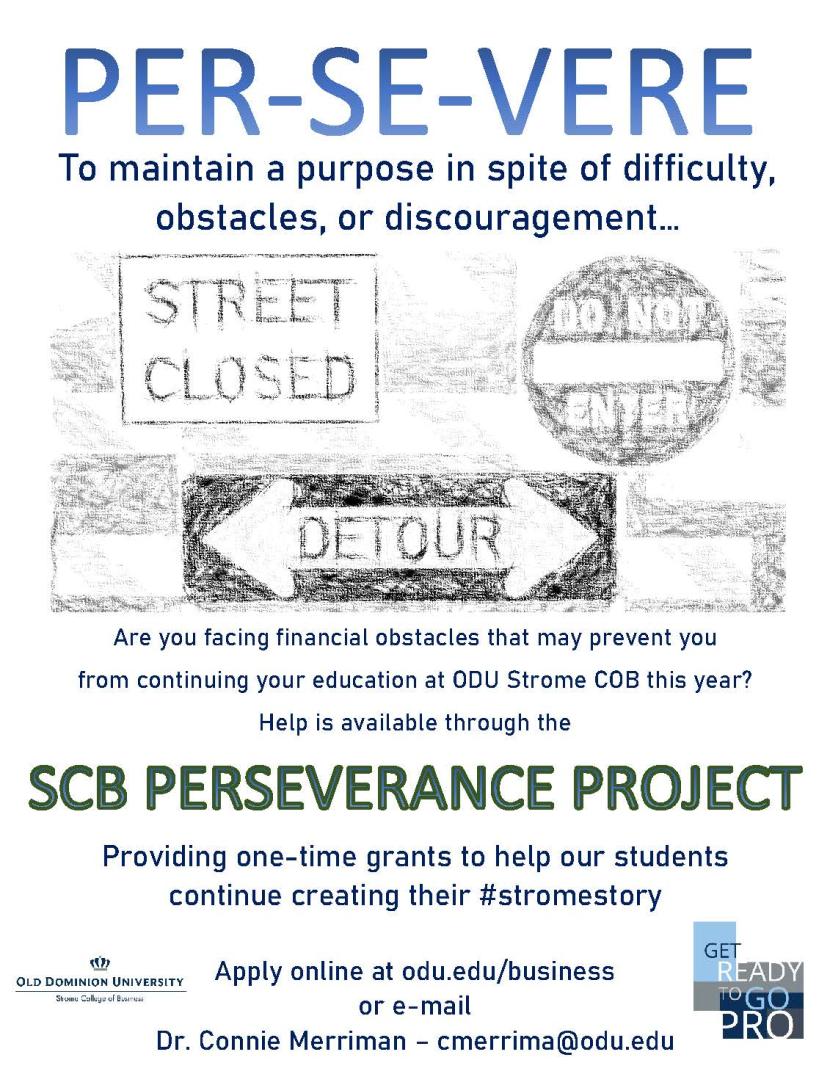Robert M. McNab
Twelve months ago, Old Dominion University's State of the Commonwealth Report predicted a sixth straight year of economic growth, low unemployment and rising incomes. Well down a list of threats was news of a troubling respiratory virus emerging in China.
The march of that virus into the global COVID-19 pandemic means that the 2020 State of the Commonwealth Report has taken a different tone. The introduction to the sixth annual report included this line: "We now live in a world where our temperatures are checked, questions about our health are asked and exposure to the coronavirus means, at a minimum, a two-week quarantine."
The 142-page report was released online on Sunday by the Dragas Center for Economic Analysis and Policy. Its overwhelming focus is on the pandemic.
"The COVID-19 pandemic has dramatically affected how Virginians live and work," said Robert M. McNab, professor of economics and Dragas Center director. "While Virginia has, comparatively, fared better than many other states, unemployment is higher, food security is lower and Virginians are left to ponder the question of when life will return to some semblance of normality."
The pandemic brought to an end 11 straight quarters of economic growth, from the second quarter of 2017 to the fourth quarter of 2019, the report noted. Real GDP contracted by 27% in the second quarter of 2020, ensuring that this year will see negative economic growth. The pace of recovery in 2021 depends in part on how quickly recently approved vaccines can be deployed across the country. "A troubled presidential transition has not eased uncertainty," the report said.
The pandemic's impact would be still challenging if it was evenly felt. However, the effect has disproportionately hit minority communities, particularly African Americans.
According to death certificate data compiled by the U.S. Centers for Disease Control and Prevention, African Americans accounted for 27% of COVID-19 deaths in Virginia through Nov. 28 despite making up only 19% of the population in 2019. The State of the Commonwealth notes that African Americans comprised more than 39% of continuing claims for unemployment insurance in October, more than two times higher than their share of the population. "If anything, the pandemic has thrown the fractures of our society into sharp relief," McNab said.
Other chapters in the State of the Commonwealth Report include:
The Way We Were: 2010-2019 - A look back at the previous 10 years to seek clues for how Virginia can position itself for a strong recovery from the COVID-19-induced recession.
Feeding Virginia - An examination of hunger in the commonwealth, and a suggestion that the 1 in 10 citizens who are food insecure face a host of challenges, which in turn affect issues like learning outcomes and workplace productivity.
Youth Mental Health in Virginia - The past decade has seen a swelling in the numbers of young Virginians reporting being anxious or depressed. With the pandemic and its accompanying lockdowns, that number is poised to soar, which can cause an array of societal problems.
Virginia's Opioid Epidemic Continues - The report revisits its 2017 chapter on opioid addiction in the state, exploring whether the COVID-19 pandemic is making it worse.
A downloadable copy of this year's State of the Commonwealth or any of the Dragas Center's reports are available at http://www.ceapodu.com/.
Related News Stories
Virginia Business Names ODU’s Nancy Grden One of “100 People to Watch: Rainmakers”
Grden was appointed as initial executive director of the Hampton Roads Maritime Collaborative for Growth & Innovation, which will launch in 2021. (More)
Strome College of Business Program Helps Students "Persevere" Through Financial Difficulties
The Perseverance Project provided grants to 28 students during the fall semester. (More)
Veteran Finds Home Near the Ocean - and at ODU
First-generation student and Navy veteran Natasha Dumm finds passion in business analytics and supply chain management. (More)







